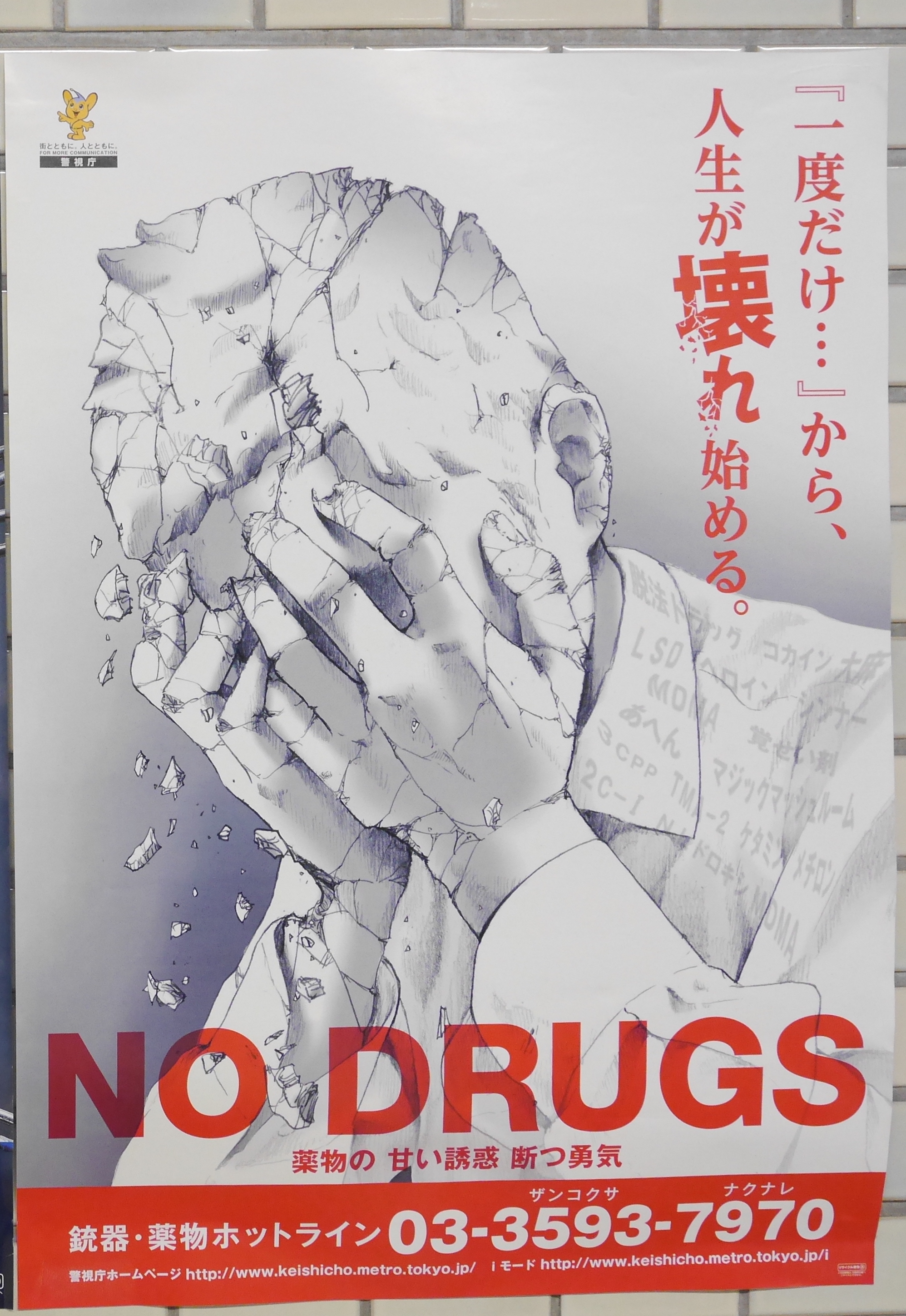13th March 2019

A recent point of debate in drug policy in the United Kingdom has concerned the apparent success of countries such as Japan in enforcing a prohibitive approach to illegal drugs. In particular, Peter Hitchens, a Mail on Sunday columnist, has frequently referenced Japan as a case exemplar of how prohibition can work. This view has also been replicated in a recent article by Philip Patrick in The Spectator.
A central proposition, as highlighted by Patrick, is that “scarily strict laws... are stringently applied and sentencing is harsh and consistent”. Moreover, that this – rather than ‘cultural differences’ – is the main reason for low levels of use. Consequently, it is argued, if these same conditions were applied in a country such as the UK, levels of use would greatly decrease. However, a closer examination of the situation severely questions this overly simplistic position.
Is law enforcement as consistent and strict as it seems?
In The Spectator article, Patrick states that “...in Japan you will be punished severely even for the possession of small amounts of weed: six months if you’re lucky, five years if not”. However, this statement, and others which assert the consistency of strict punishment in illegal drug cases, are not entirely accurate.
Using the example of Cannabis Control Act offences, which Hitchens and Patrick seem particularly intrigued about, the prosecution rate in 2017 was just over 50%. This does not sit comfortably with claims of consistency in punishment.
Moreover, when taking into consideration the proportion of imprisonment sentences which are suspended, this further undermines the view that drug users always serve their sentence in prison. For Stimulant Control Act offences, a first-time offender will most likely receive a prison sentence of 1-2 years. Amongst all 1-2 year sentences given, over 50% were suspended in 2017.
Is the ‘rule of law’ the primary reason for low levels of use?
In advancing the argument that it is the law and its enforcement which accounts for trends in illegal drug use in Japan, it has been simultaneously asserted that “[t]he idea that the Japanese and South Korean difference is ‘cultural’ is fatuous.” (Hitchens, blog post, 22nd Feb 2017).
In the 2017 nationwide self-report survey, participants who have no experience of using an illegal drug were asked their reasons for not using, with multiple selections possible. Whilst being prohibited by law is clearly a factor for why people choose not to use illegal drugs, it is not the most populous reason (“I have no interest”) and lies third behind health concerns.
In a separate question, which forced all participants to prioritise which statement best fits their beliefs, the illegality of the substance was a clear second to views that drug-taking is wrong:
| Statement | Substance | Percentage |
|---|---|---|
| “Under no situation should it be used, regardless of whether legally prohibited or not” | Cannabis | 77% |
| Methamphetamine | 89% | |
| “It should not be used because it is legally prohibited” | Cannabis | 16% |
| Methamphetamine | 8% |
Thus, it is perhaps more plausible to suggest that the law is complementary to, and reflective of, a broader set of dominant views about drug taking, rather than being the defining force of such values. This opens up a space in which to ask what – if not the rule of law – shapes people’s beliefs. Social culture, I would suggest, is a good place to start.

An Occidental Fantasy?
The relationship between law and culture is extremely complex. Assertions that “‘culture’ on such matters is greatly influenced by law” (Hitchens, blog post, 22nd Feb 2017) seems to come from what can be termed an ‘occidentalist’ position, which, as Professor Maureen Cain explains, “...presumes the ‘sameness’ of key cultural categories, practices and institutions” to the West.
To assume that the 'rule of law' is a guiding principle in the lives of Japanese people completely ignores the fact that for almost all of Japan's history it was guided by influences which differed to Europe. Even with the importation of legal frameworks from the 19th century, as Nobuo Komiya notes, Japan “...imported the form... and not its spirit”.
By dismissing or otherwise trying to shut down discussions of culture as “racist” (Hitchens, Twitter), this tactic serves to redirect attention away from factors which fundamentally question the ‘occidental fantasy’.
This is also why it is so perplexing that Patrick, who has 20 years’ experience of living in Japan, can both simultaneously recognize differences in culture – “The Japanese still see criminality as a question of individual morality, not the result of disadvantaged circumstances” – whilst also assuming that culture and the law are distinct entities.
The problem such commentators face is that if they were to accept that culture (or other factors) plays a significant role, then it becomes difficult to claim that the approach can and should be copy-and-pasted to the UK context. As is often the case in policy spheres so heavily tainted by entrenched positions, it is all too easy to look only for a simple narrative which fits the normative beliefs of those searching rather than applying one’s critical faculties in understanding the complexity of the social world.>
Dr. David Brewster - Postdoctoral Researcher, Ryukoku University




